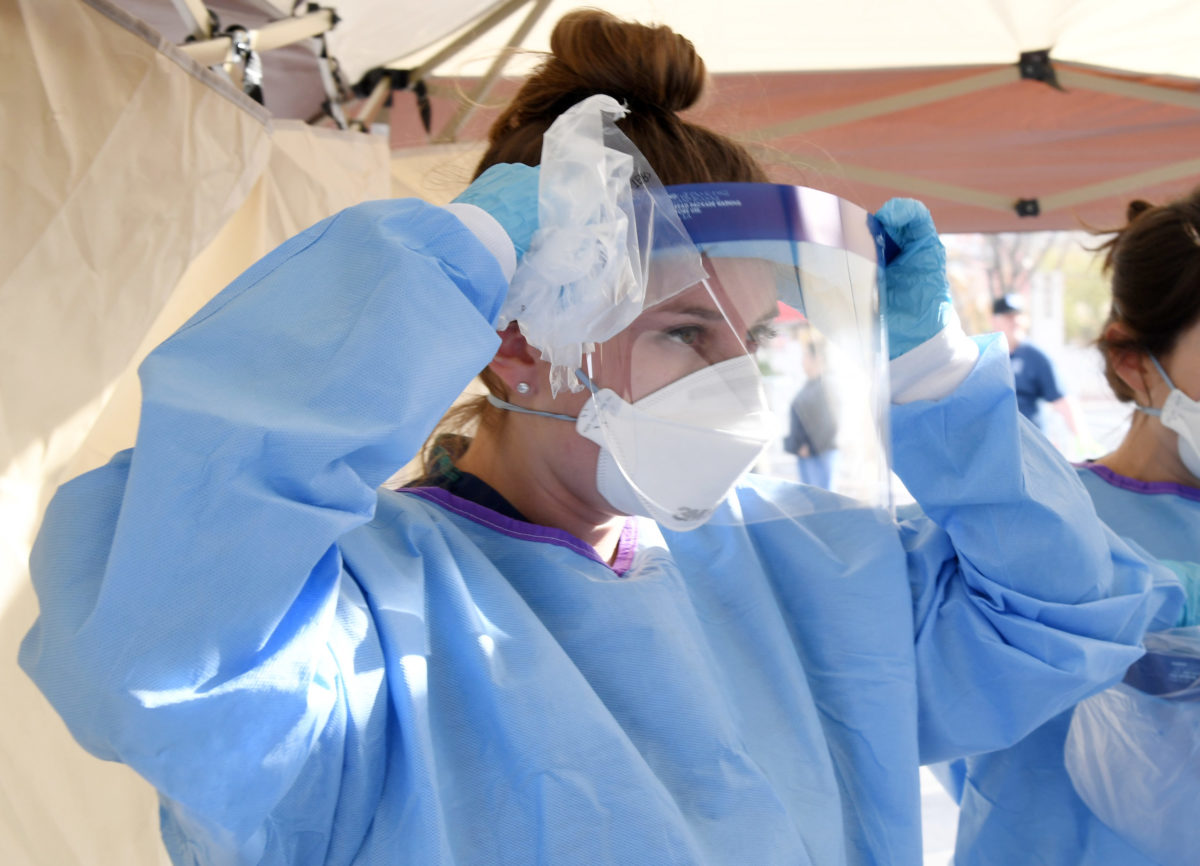Even before we were dealing with a global pandemic, people with high BMIs (“body mass index”) had to deal with a lot of crap. Fatphobia is real, and people are constantly shamed, misdiagnosed and given lower standards of care because of their weight. This kind of lazy medicine has been a problem for decades, and the tendency of medical professionals to blame every health problem on weight is not just unhelpful and discriminatory, but dangerous.
And now, with coronavirus ravaging the country, fatphobia in medicine has raised its ugly head again and a myth has taken hold that those with higher BMI are more at risk for complications from COVID-19. And what’s worse, with medical supplies and ventilators in short supply, some patients face the very real fear that if services are rationed, they will be denied help because they are perceived to be at higher risk and unhealthy.
First off, where did this idea that a higher BMI means higher COVID risk come from? It gained traction came thanks to a spate of studies that made headlines in early April, which included a CDC report that showed 48% of those with available BMI data who had been hospitalized were categorized as “obese.”
The headline that “obesity appears to raise COVID-19 risk” fits neatly into our reestablished cultural narratives about larger people, and reinforces our biases against those we see as “unhealthy.” There may be a correlation between higher BMI and risk, but correlation is not causation and the more pressing problem is that both the studies providing the basis for this idea, and the concept of BMI itself, are flawed.
Let’s look at COVID-19 specifically first. As Wired magazine puts it, the biggest factors contributing to COVID-19 hospitalization and death are underlying conditions that tend to be more prevalent in poor, marginalized communities—conditions that are exacerbated by poverty and systemic inequality. There are higher rates of obesity in these communities, just as there are higher rates of other conditions. “Those health disparities are on full display in the COVID-19 pandemic, which is disproportionately impacting black communities—not because of biology, but because of systemic inequalities like higher rates of exposure to the virus and less access to medical care.”
And the false equivalencies and correlations go beyond that. Because, while many people who have been hospitalized for COVID-19 have higher BMI, the BMI itself is a flawed, inaccurate measure of health and its widespread use reinforces extremely outdated and just plain wrong ideas about what is “healthy.”
The Body Mass Index was invented by Belgian academic Adolphe Quetelet in the 19th century. Quetelet was not a doctor, and didn’t study medicine at all. He studied averages and the BMI was a number based on his studies of Scottish and French people’s average weight in—and I cannot stress this enough—the 19th century. Now the BMI formula we use today was developed in the ’70s, based on Quetelet’s idea, developed by researcher Ancel Keyes, based mainly on white men.
Can we see how flawed this idea is already and how messed up it is that we are defining obesity and making health decisions based on this extremely arbitrary number that has a history of racist applications? The very idea that there is a formula that is an accurate measure of the “correct” weigh of all people is incredibly foolish, given how age, sex, race and so much more affect weight and that the BMI itself is not an accurate picture of health.
It can be a nightmare to go to the doctor when your BMI does not fall into these unrealistic standards. All too often, the answer to every complaint is “lose weight” and that kind of irresponsible, lazy thinking by the professionals who should be taking care of us is so dangerous because it means they aren’t really doing their jobs. When it comes to the public health crisis we are facing right now, it becomes even more dangerous and frustrating to see “obesity” equated with higher COVID-19 risks, when the truth is far more complex and nuanced.
There is so much bad information out there about coronavirus, and when it combines with the bad information and serious cultural biases we hold about bodies, it’s a recipe for shame, anxiety and real danger for people whose bodies don’t conform to the limited ideal of some academic from the 19th century. Critical thinking is hard, especially in these times, but we have to do it to save lives and emerge from this better informed than when we started.
(via Wired. Image: Ethan Miller/Getty Images)
Want more stories like this? Become a subscriber and support the site!
—The Mary Sue has a strict comment policy that forbids, but is not limited to, personal insults toward anyone, hate speech, and trolling.—










Published: Apr 21, 2020 12:03 pm